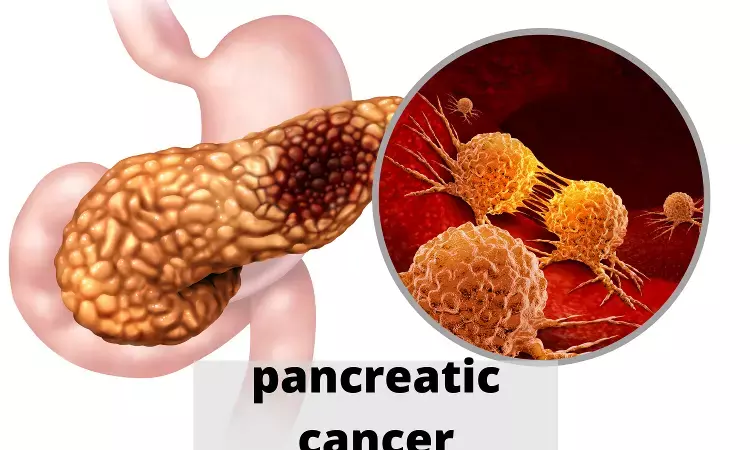- Home
- Medical news & Guidelines
- Anesthesiology
- Cardiology and CTVS
- Critical Care
- Dentistry
- Dermatology
- Diabetes and Endocrinology
- ENT
- Gastroenterology
- Medicine
- Nephrology
- Neurology
- Obstretics-Gynaecology
- Oncology
- Ophthalmology
- Orthopaedics
- Pediatrics-Neonatology
- Psychiatry
- Pulmonology
- Radiology
- Surgery
- Urology
- Laboratory Medicine
- Diet
- Nursing
- Paramedical
- Physiotherapy
- Health news
- Fact Check
- Bone Health Fact Check
- Brain Health Fact Check
- Cancer Related Fact Check
- Child Care Fact Check
- Dental and oral health fact check
- Diabetes and metabolic health fact check
- Diet and Nutrition Fact Check
- Eye and ENT Care Fact Check
- Fitness fact check
- Gut health fact check
- Heart health fact check
- Kidney health fact check
- Medical education fact check
- Men's health fact check
- Respiratory fact check
- Skin and hair care fact check
- Vaccine and Immunization fact check
- Women's health fact check
- AYUSH
- State News
- Andaman and Nicobar Islands
- Andhra Pradesh
- Arunachal Pradesh
- Assam
- Bihar
- Chandigarh
- Chattisgarh
- Dadra and Nagar Haveli
- Daman and Diu
- Delhi
- Goa
- Gujarat
- Haryana
- Himachal Pradesh
- Jammu & Kashmir
- Jharkhand
- Karnataka
- Kerala
- Ladakh
- Lakshadweep
- Madhya Pradesh
- Maharashtra
- Manipur
- Meghalaya
- Mizoram
- Nagaland
- Odisha
- Puducherry
- Punjab
- Rajasthan
- Sikkim
- Tamil Nadu
- Telangana
- Tripura
- Uttar Pradesh
- Uttrakhand
- West Bengal
- Medical Education
- Industry
Gallstone disease a strong predictor of pancreatic cancer

Patients with pancreatic ductal adenocarcinoma (PDAC) were six times more likely to have had gallstone disease within the year prior to diagnosis than non-cancer patients, suggesting gallstones could be a warning sign for this aggressive and deadly cancer, according to research to be presented at Digestive Disease Week (DDW) 2022. PDAC is the most common pancreatic cancer, accounting for more than 90% of cases, and it is often fatal because it tends to be diagnosed in late stages.
"Pancreatic cancer can be difficult to diagnose and then chances of survival are slim. Our findings suggest that gallstone disease may be a way to better diagnose this type of cancer-meaning we could save more lives," said Marianna Papageorge, MD, lead researcher on the study and research fellow at Boston Medical Center.
Using records in the SEER-Medicare database from 2008 to 2015, researchers identified 18,700 PDAC patients and compared them to an average of 99,287 patients per year from the same database. In the year before diagnosis, 4.7 percent of the PDAC patients had a diagnosis of gallstone disease and 1.6 percent had their gallbladders removed. Among the non-cancer patients, only 0.8 percent had gallstones and only 0.3 percent had their gallbladders removal.
"Gallstone disease does not cause pancreatic cancer but understanding its association with PDAC can help combat the high mortality rate with pancreatic cancer by providing the opportunity for earlier diagnosis and treatment," Dr. Papageorge said.
Since many people have gallstones but do not develop pancreatic cancer, future research could look more closely at laboratory findings and imaging to see if there are specific factors related to gallbladder disease that could further distinguish which patients might have or develop pancreatic cancer, Papageorge said.
"It is such a terrible disease, and survival is so low," Dr. Papageorge said. "People present at such advanced stages, so anything we can do to try to diagnose people earlier and make sure that they're getting curative treatment is crucial. This might be a key to better understanding next steps in screening, management and earlier diagnosis."
Dr Kamal Kant Kohli-MBBS, DTCD- a chest specialist with more than 30 years of practice and a flair for writing clinical articles, Dr Kamal Kant Kohli joined Medical Dialogues as a Chief Editor of Medical News. Besides writing articles, as an editor, he proofreads and verifies all the medical content published on Medical Dialogues including those coming from journals, studies,medical conferences,guidelines etc. Email: drkohli@medicaldialogues.in. Contact no. 011-43720751


